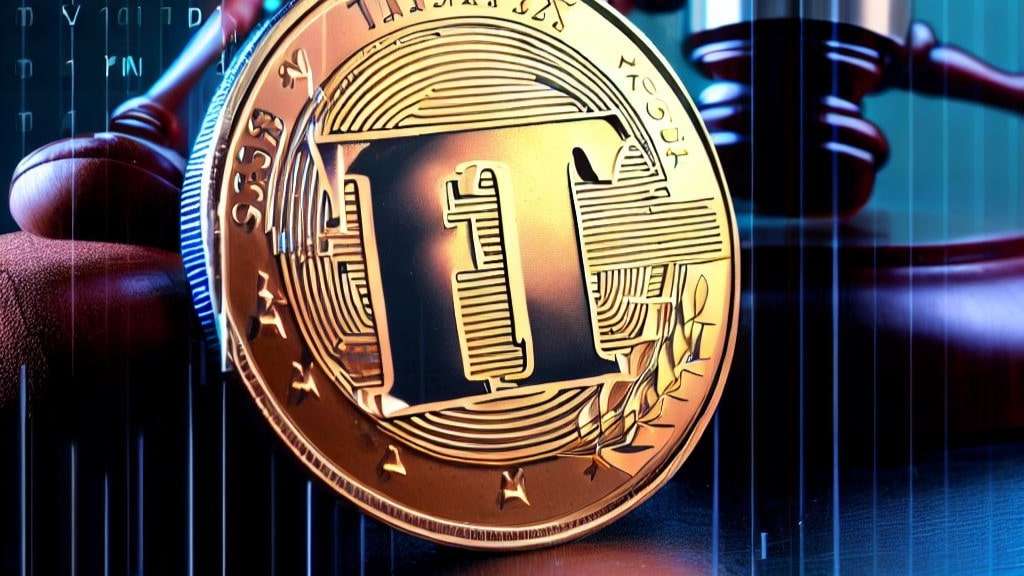
A graphic depicting a scale balancing cryptocurrency symbols against a gavel and a crowd of concerned individuals.
In a significant development in the world of cryptocurrency, the Delaware court has given its approval to FTX, a once-prominent crypto exchange, to proceed with the liquidation of its assets. With approximately $3.4 billion worth of digital assets at stake, including popular cryptocurrencies like Solana (SOL), Bitcoin (BTC), and Ethereum (ETH), this decision will have far-reaching consequences not only for the exchange itself but also for the broader crypto market and the affected customers.
FTX, like many others in the crypto industry, faced a tumultuous journey, culminating in bankruptcy. The exchange has strived to recover both digital and real-world assets, totaling nearly $7 billion. However, it has deemed its crypto assets as among the most liquid, which it intends to use to reimburse customers who suffered losses during the exchange’s infamous collapse.
During the recent court hearing, US Bankruptcy Judge John Dorsey approved FTX’s proposal, which includes a set of safeguards designed to minimize the potential impact of the asset liquidation on cryptocurrency prices. One key provision limits the weekly sale of crypto assets from the FTX bankruptcy estate to $100 million.
In addition to this limit, the company will engage in hedging and staking agreements to reduce price volatility, allowing it to generate passive income from the assets while they are being liquidated. These measures aim to strike a balance between reimbursing customers and preserving the stability of the broader crypto market.
It’s worth noting that the FTX bankruptcy estate has been careful in its approach, with the option for both bankruptcy parties to agree to raise the weekly sale limit to $200 million if deemed necessary. This flexibility demonstrates a commitment to finding the right equilibrium between expediting customer refunds and avoiding unnecessary market turbulence.
To ensure transparency and security throughout the liquidation process, FTX’s bankruptcy estate has appointed Galaxy Digital, a US trading firm with a focus on institutional clients, to oversee the proceedings. Galaxy Digital will serve as an investment adviser and play a crucial role in preventing any “information leaks” that could potentially lead to widespread market short-selling of crypto assets during the liquidation period.
The involvement of Galaxy Digital is a strategic move aimed at maintaining market confidence and ensuring that the liquidation process is conducted with utmost professionalism and integrity. The cryptocurrency community is closely watching these developments, as they have the potential to set a precedent for how bankruptcies in the crypto industry are handled in the future.
FTX’s new leadership has outlined a cautious timeline for refunding creditors, estimating that it could take up to two years to complete the process. While this may seem like a lengthy duration, it reflects the complexities involved in liquidating substantial amounts of cryptocurrency holdings while ensuring fair distribution to affected customers.
Furthermore, there exists the possibility that creditors may recover between 50% to 70% of their lost funds after the bankruptcy process concludes. The actual percentage will depend on various factors, including the success of asset liquidation, market conditions, and the priority of claims in the bankruptcy proceedings.
As FTX embarks on this unprecedented liquidation journey, the broader crypto market is also paying close attention. The exchange’s substantial holdings of Solana, Bitcoin, Ethereum, Aptos, and XRP could potentially influence market dynamics, especially if these assets are sold in large volumes.
However, the safeguards put in place, including the weekly sale limit and risk mitigation through hedging and staking agreements, indicate a commitment to responsible asset liquidation. While some short-term fluctuations may occur, the crypto market’s resilience and maturity are expected to absorb these changes.
The court’s decision to grant FTX the authority to liquidate its assets is a significant moment in the crypto industry. It marks a crucial step towards addressing the fallout from the exchange’s collapse and providing some relief to affected customers. The careful implementation of safeguards and the involvement of trusted oversight in the form of Galaxy Digital demonstrate a commitment to fairness and market stability.
As the cryptocurrency community watches this process unfold, it serves as a reminder of the importance of responsible and transparent practices in the crypto space. While challenges lie ahead, including the lengthy timeline for customer refunds and market dynamics, the industry continues to evolve and adapt to ensure a more secure and reliable future for digital assets.


Get the latest Crypto & Blockchain News in your inbox.